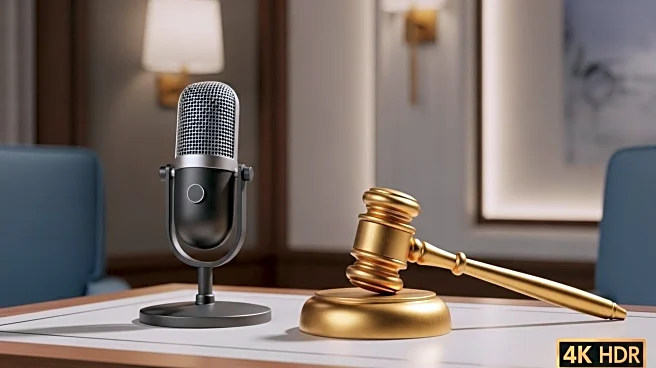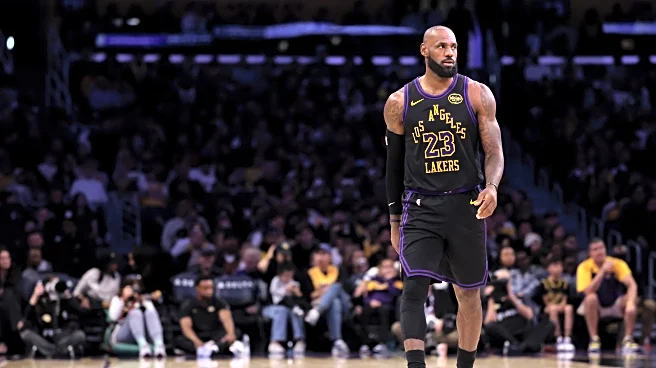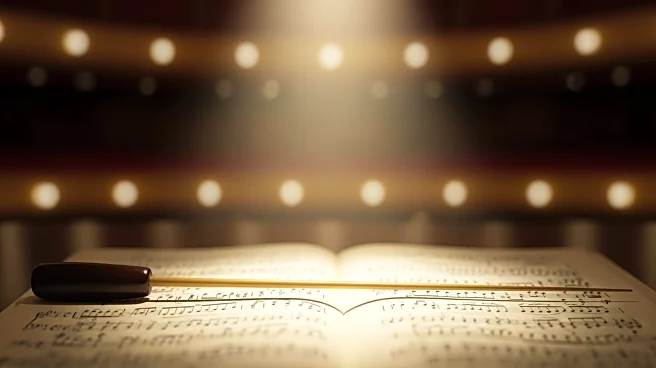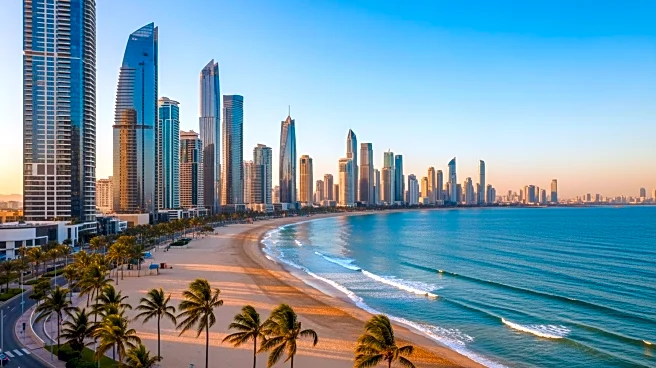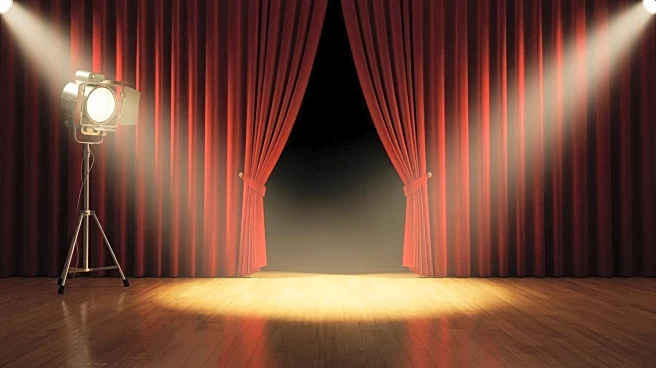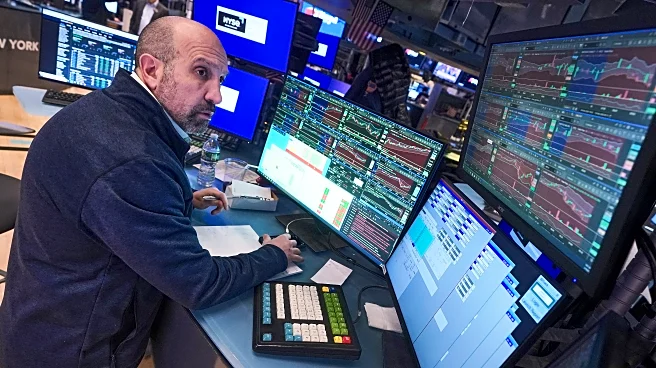What's Happening?
Jimmy Kimmel, the late-night television host, has recently been highlighted in a poll conducted by The Economist and YouGov, which shows that he has a higher favorability rating than President Trump. According to the poll, 44% of Americans approve of Kimmel, while 41% disapprove. In contrast, President Trump has a 41% approval rating with a 54% disapproval rating. Kimmel humorously addressed these results on his show, noting that he leads President Trump by 16 points in net approval. The White House responded to the poll results by emphasizing the 77 million votes President Trump received in the last election, while also criticizing Kimmel's show for a significant drop in ratings.
Why It's Important?
The poll results are significant as they reflect public sentiment towards President Trump and a popular media figure like Jimmy Kimmel. This comparison highlights the ongoing cultural and political divide in the United States, where media personalities can wield substantial influence over public opinion. The White House's response underscores the administration's sensitivity to public perception and media portrayals. The favorability ratings could impact public discourse and influence how political figures and media personalities engage with their audiences.
What's Next?
The ongoing rivalry between President Trump and Jimmy Kimmel may continue to unfold in the public eye, with potential implications for both parties. Kimmel's commentary and the White House's responses could further fuel media coverage and public debate. As the political landscape evolves, both figures may adjust their strategies to maintain or improve their public standing. The poll results may also influence how other media personalities and political figures approach their public engagements.
Beyond the Headlines
The poll results and subsequent reactions highlight the intersection of entertainment and politics in shaping public opinion. This dynamic raises questions about the role of media in political discourse and the impact of celebrity influence on political narratives. The cultural implications of such interactions may contribute to broader discussions about media responsibility and the power of public figures in shaping societal views.
